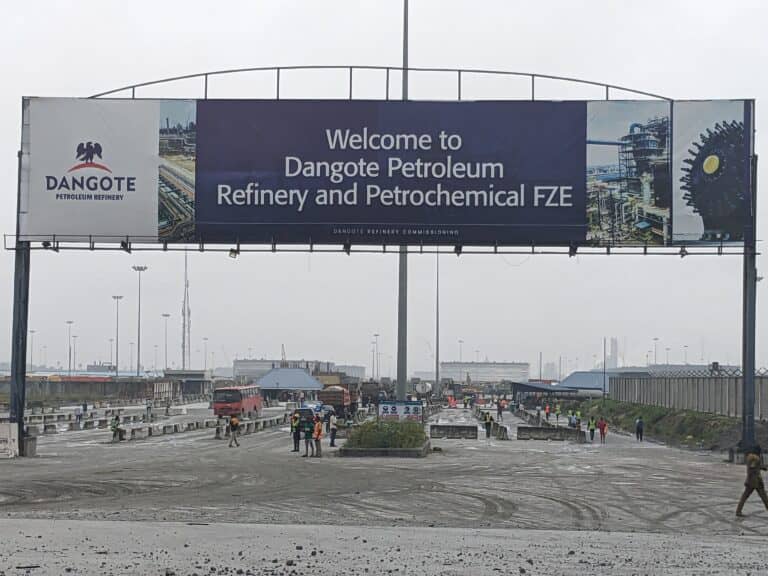After days of tense negotiations, the Federal Government has mediated a resolution between Dangote Petroleum Refinery and the Petroleum and Natural Gas Senior Staff Association of Nigeria (PENGASSAN). On Wednesday, Labour and Employment Minister Mohammed Maigari Dingyadi announced that both sides reached an agreement following marathon talks. “Unionisation is a worker’s right under Nigerian law, and this must be respected,” the minister stated. The deal ensures that sacked workers will be redeployed within the Dangote Group without loss of pay, and no one will face retaliation for their role in the dispute. PENGASSAN also agreed to begin calling off its strike.
The conflict stemmed from deep frustrations among refinery workers, who joined PENGASSAN to push for better wages and working conditions. A process engineer, speaking anonymously to the Foundation for Investigative Journalism (FIJ), revealed that staff faced stagnant salaries, inadequate safety measures, and poor healthcare. “We’ve had no promotions, and a 25% pay raise only came in January after BUA increased its staff salaries by 50%,” he said. He noted that inflation, which has surged nearly 300% since he joined, has eroded their earnings.
The engineer also highlighted disparities in treatment, claiming expatriate workers—often less experienced—were favored over Nigerians. “We train them, but they end up as our bosses,” he said. He described the refinery’s healthcare as substandard, with ineffective clinic drugs forcing workers to buy their own medications. Allowances were also a sore point: a vague “others” category in payslips, recently increased from N1,000 to N54,000, was meant to cover essentials like personal protective equipment (PPE).

Workers also complained of grueling 12- to 13-hour shifts with no breaks, yet were paid for only three hours of overtime instead of four. Engineers reportedly earn about N400,000 monthly, but after heavy taxes—sometimes as high as N164,000—take-home pay can dip below N200,000. Safety concerns were rampant, with inadequate PPE and hazard allowances stuck at N1,000 for years.
The push to unionize came after PENGASSAN convinced workers they deserved pay aligned with global oil and gas standards. “About 900 signed up the first day, and within two hours, it was 1,000,” the engineer told FIJ. Tensions escalated when reports surfaced that Indian expatriates’ salaries doubled from $13,000 to $26,000 monthly, while Nigerian workers got modest raises. Soon after, the refinery sacked workers en masse, informing them the next day after their shifts.
The sackings sparked outrage, with online reactions split. Some, like commenter Paparazzi, called Dangote a “chauvinistic capitalist” exploiting Nigerians. Others, like Ojo Johnson, argued workers should be “grateful” for jobs and blamed unions for stirring trouble. Akpos De Oyel Bros countered, questioning why workers should accept poor pay when Dangote benefits from taxpayer-funded incentives. Another commenter, Julius Ndanga Njele from Cameroon, urged Dangote to prioritize safety and fair pay, citing international standards like Cameroon’s SONARA refinery.
The resolution offers relief for workers, but the episode has exposed deep issues at the refinery, from pay disparities to safety lapses. As Dangote navigates its role as a major player in Nigeria’s economy, the spotlight remains on how it treats its workforce.




